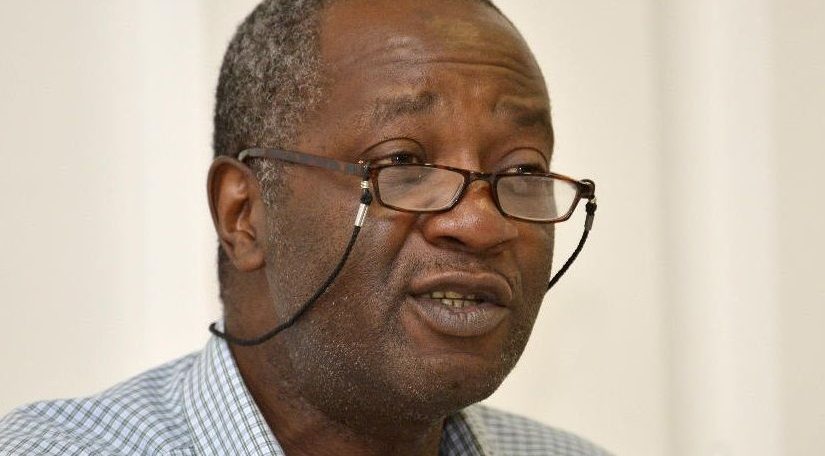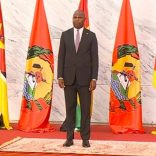Mozambique: Police uses tear gas to disperse Mondlane supporters in Maputo
Mozambique: Crises in civil service result from policies to please international institutions – Ngoenha

File photo: O País
Mozambican political philosopher Severino Ngoenha argued on Monday that the crises in the civil, with strikes and threats of work stoppages, are the result of policies adopted to please international institutions, warning that the government and the people are “turning their backs” [on each other].
“The government has to make a decision: whether to please the people of Mozambique or the International Monetary Fund (IMF) and the World Bank. Power relations mean that the government is always more attentive to complying with the orders of these international institutions,” says Severino Ngoenha, considered one of the most important philosophers in Mozambique today, in an interview with Lusa in Maputo.
The crisis that has taken hold in the Mozambican state apparatus is the result of strikes and threats of strikes by civil servants, who are demanding better working conditions and protesting, above all, against payment delays and salary cuts which began with the implementation of the new Single Salary Table (TSU), adopted as part of the IMF recommendations on reducing the state payroll.
In protest against these measures, Mozambican doctors have scheduled a new strike for September 2, while judges and public prosecutors will go on strike in August.
According to Ngoenha, the current policymakers in Mozambique are international institutions, whose interests are not aligned with the needs of the Mozambican people.
“The policies of international organizations are about numbers and the interests of their principals. It has nothing to do with the real needs of the people. The IMF and the World Bank are institutions that were created by the victors of the [world] wars and that have to defend their own economic balances, their own interests,” declared the author of “Os Tempos Africanos do Mundo [The African Times of The World]”.
Ngoenha argues that Mozambique needs to start thinking about freeing itself from this dependence, despite the sanctions that may result from this decision, positing that Mozambique will not survive if the government continues to “turn its back on the people”.
“Even if we have to row against international institutions, we have to look at the people. […] Even though we know that the consequences are sanctions, but whatever, we have been sanctioned for almost 50 years of our history, from independence, Ian Smith’s invasions, the 16-year war, to the hidden debts. And we have managed to survive. But we will not survive if our government turns its back on its own people. That will be the end of our country,” Ngoenha says.
Ngoenha also said that dependence on these world economic institutions is not inevitable. “There is no country in the world that has developed thanks to the measures of the IMF or the World Bank. Lula’s Brazil left the IMF and the World Bank and that was the moment Brazil grew the most, lifting the most people out of poverty.”
For the author of “Resistir a Abadon”, the ideal would be for the global system to be able to reconcile economic measures with the well-being of the majority, but if this association is impossible, the priority should be the people.
“If that is not possible, we have to make a choice. I think the most reasonable thing is to choose our people and not the bureaucrats and the World Bank employees, who ultimately represent the interests of capitalist groups,” Ngoenha concludes.
The introduction in Mozambique of the new public sector salary scale (TSU) was the focus of strong opposition from professional classes such as doctors and teachers, with records of salary delays and cuts, including in the security forces.
Approved in 2022 to eliminate asymmetries and keep the state’s wage bill under control, its launch caused wages to soar initially by around 36%, with expenditure rising from of 11.6 billion meticais/month (€169 million) to 15.8 billion meticais/month (€231 million).
The TSU cost around 28.5 billion meticais (€410 million) “more than expected”, according to a document from the International Monetary Fund (IMF) on the evaluation of the assistance program for Mozambique consulted by Lusa in January this year.












Leave a Reply
Be the First to Comment!
You must be logged in to post a comment.
You must be logged in to post a comment.